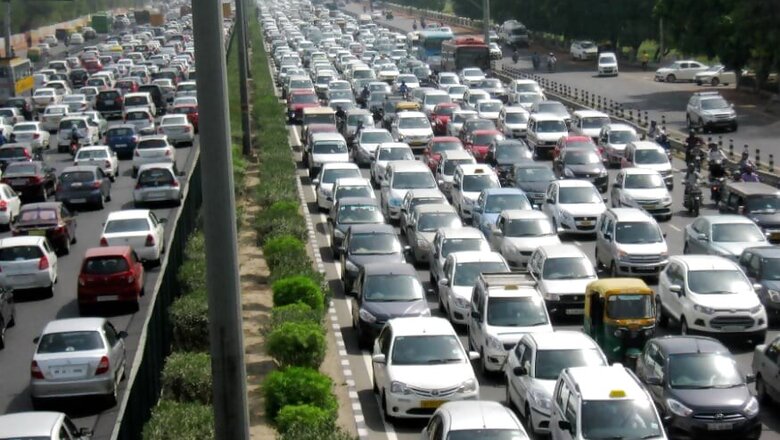
views
After being passed in the Lok Sabha a few weeks earlier, the Motor Vehicle (Amendment) Bill will go into effect from today. The Bill was passed by a voice vote and several amendments moved by opposition members were also rejected by a voice vote. The new bill was passed to amend the provisions of the Motor Vehicles Act of 1988 which was tabled in the house back in 2017, but was not cleared in the upper house and eventually got lapsed with the dissolution of the 16th Lok Sabha. The Act provides for the grant of licenses and permits related to motor vehicles, standards for motor vehicles, and penalties for violation of these provisions.
While this includes several changes, here are the top five things you need to know:
Offences and penalties: The Bill increases penalties for several offences under the Act. For example, the maximum penalty for driving under the influence of alcohol or drugs has been increased from Rs 2,000 to Rs 10,000. If a vehicle manufacturer fails to comply with motor vehicle standards, the penalty will be a fine of up to Rs 100 crore, or imprisonment of up to one year, or both. If a contractor fails to comply with road design standards, the penalty will be a fine of up to one lakh rupees. The central government may increase fines mentioned under the Act every year by up to 10%.
Compensation for road accident victims: The central government will develop a scheme for cashless treatment of road accident victims during golden hour. The Bill defines the golden hour as the time period of up to one hour following a traumatic injury, during which the likelihood of preventing death through prompt medical care is the highest. The central government may also make a scheme for providing interim relief to claimants seeking compensation under third party insurance. The Bill increases the minimum compensation for hit and run cases as follows: (i) in case of death, from Rs 25,000 to two lakh rupees, and (ii) in case of grievous injury, from Rs 12,500 to Rs 50,000.
Good samaritans: The Bill defines a good samaritan as a person who renders emergency medical or non-medical assistance to a victim at the scene of an accident. The assistance must have been (i) in good faith, (ii) voluntary, and (iii) without the expectation of any reward. Such a person will not be liable for any civil or criminal action for any injury to or death of an accident victim caused due to their negligence in providing assistance to the victim.
Compulsory insurance: The Bill requires the central government to constitute a Motor Vehicle Accident Fund, to provide compulsory insurance cover to all road users in India. It will be utilised for: (i) treatment of persons injured in road accidents as per the golden hour scheme, (ii) compensation to representatives of a person who died in a hit and run accident, (iii) compensation to a person grievously hurt in a hit and run accident, and (iv) compensation to any other persons as prescribed by the central government. This Fund will be credited through: (i) payment of a nature notified by the central government, (ii) a grant or loan made by the central government, (iii) balance of the Solatium Fund (existing fund under the Act to provide compensation for hit and run accidents), or (iv) any other source as prescribed the central government.
Recall of vehicles: The Bill allows the central government to order for recall of motor vehicles if a defect in the vehicle may cause damage to the environment, or the driver, or other road users. The manufacturer of the recalled vehicle will be required to: (i) reimburse the buyers for the full cost of the vehicle, or (ii) replace the defective vehicle with another vehicle with similar or better specifications.
You can read up more of the highlights of the Motor Vehicles (Amendment) Bill 2019 by checking out the report by PRS India here.

















Comments
0 comment